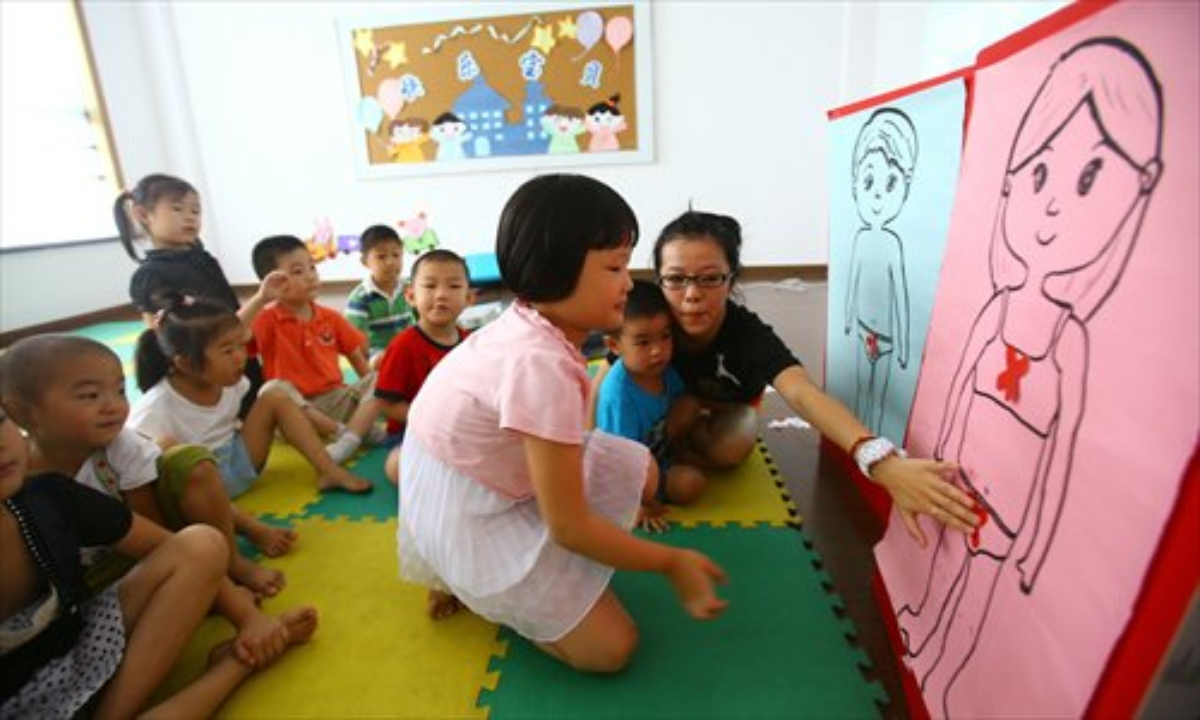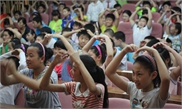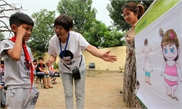
Children receive sex education at a kindergarten in Yangpu District, Shanghai in August 2013. Photo: CFP
A deputy to the National People’s Congress (NPC) proposes compiling sex education picture books for children as soon as possible at this year’s ongoing two sessions, as sex education, an indispensable part of schooling for children to raise awareness of self-protection, has long been inadequate either at home or in schools in China, for the topic has been considered a taboo for children.
In light of this, Chen Wei, the deputy, also vice director of Quzhou City Hospital of Traditional Chinese Medicine in East China’s Zhejiang Province, proposed compiling and publishing sex education picture books for children with the joint effort from professionals from interdisciplinary fields such as literary writers, sex education experts, psychologists and illustrators to provide scientific and rigorous children’s books on sex education as soon as possible.
In a proposal put forward by Chen to be submitted to this year’s annual two sessions, she wrote that sex education is conducive to the healthy development of children and the creation of a sound environment. Researches have shown that sex education courses based on picture books have positive effects on the learning of relevant knowledge by children.
In particular, picture books on the prevention of sexual abuse against children can raise children’s self-protection capabilities, help them identify potential sexual assaults, and refuse inappropriate touching in a timely manner.
Based on data collected from the cases publicly reported by media outlets in 2021 including the cases disclosed by the official websites and authentication accounts of courts and procuratorates at all levels, a report released in 2022 by Girls Protection, a Chinese nongovernmental organization, 223 cases of sexual assault against children involving more than 569 victims were reported in 2021. Between 2013 and 2021, hundreds of cases of sexual assault against children were reported each year.
Teaching through picture books can also improve children’s understanding of the birth of lives, the difference of genders and public moral values, Chen noted in the proposal.
However, Chen pointed out that sex education has remained a sensitive topic in China which publishing houses and responsible departments have stayed prudent in publishing children’s books.
According to Chen, public opinions have become increasingly demanding for the “purity” of children’s books in recent years, and the new books published almost have no “naked” pictures of human body or any “reproductive organs.” Besides, previously published picture books have also been complained or even taken off the shelves if they had such pictures.
According to Chen, Zhenai Shengming, meaning cherishing life, a set of sexual health education books for primary school students published by Beijing Normal University Publishing Group was taken off shelves in 2019 after it was complained. A similar set of books for younger children was also required to be taken off shelves.
Chen suggested that related government policies from government education departments should be rolled out as quickly as possible to provide necessary financial supports such as research funding and publishing subsidies to creator teams of children’s sex education picture books in a bid to encourage more talent to join in the work.
Chen also suggested setting up an interdisciplinary cooperation platform on which writers of children's literature, sex education experts, psychologists and illustrators can jointly develop the sex education picture books for children of different ages, assuring the content of the books to be scientific, appropriate and interesting.
Chen noted that children’s sex education picture books should scientifically comprise diagrams of the human body, including private parts of males and females, and provide their names. Such content should be respected rather than being deleted for the concerns of public opinions.
During the review period of the books, experts of sex education should be invited to ensure that the content is scientific and rigorous and to avoid misleading children by gender stereotypes, gender bias or gender discrimination.
At the annual two sessions in 2023, Chen also submitted a proposal to introduce sex education into kindergartens and compile teaching materials in line with China’s national conditions.
Global Times


